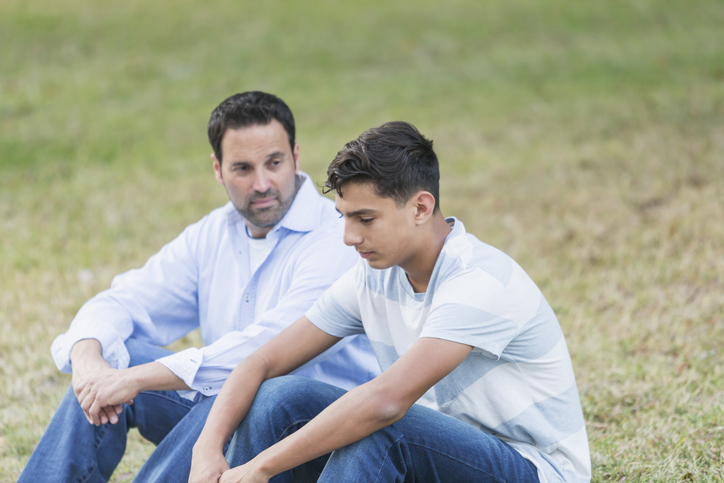Losing someone you love is hard at any age. However, for a child it can be even more difficult to navigate and understand. The concept of death may not have registered in their brains at such a young age and as such, breaking the news to them that their beloved grandma or grandpa who was alive and well in an assisted living facility only a short while ago, has now moved on to the next world can be tough for everyone— including parents.

However, as a parent, it’s your job to help explain the concept of death, and help them through the grieving process. To help you, here are some of the best tips for helping your child through the loss of a grandparent.
Be Honest
At first, you may hesitate about whether you should break the news to them at all. After all, the thought of seeing them heartbroken or bursting into tears is all too much to imagine. However, you must be honest when communicating with them.
Use age appropriate language to help them understand. Make sure that they understand that death is definitive, and grandma and grandpa are not coming back. Remember, the more you let it drag on with unclear language or lack of honesty, the worse it will be In the long run.
Let Them Know Any Emotion They Experience is Okay
They may be feeling all sorts of things, from anger to sadness, to frustration, to even fear. Tell them that whatever they’re feeling is perfectly normal, and validate their feelings. Let them know that it’s totally normal to feel a wide range of emotions and that it’s OK to grieve.
Encourage them to express their feelings in different ways. Perhaps this could be dancing, screaming, or even punching a pillow. Whatever they need to do to release their emotions should be encouraged and accepted.
Share Memories
One of the most powerful ways to grieve the death of someone you love is to talk about them. Encourage your child to share memories of a time when their grandparents were alive. Encourage them to talk about them, and hang up photos that will allow them to reminisce.
You may also choose to create a scrapbook of memories collected over the years, which can be a fun activity and a special way for them to process their grieving while also being distracted with a project.
Consider Therapy
For some children, processing grief may be incredibly difficult for them to handle. In that case, you may want to consider bringing on a professional. A therapist can help your child navigate their big feelings and offer tools that may help them move through their grief easier.
Remember, your child is not the only one grieving. You’ve all lost someone in the family, so give yourself time to grieve as well. Above all, remember the importance of patience. Healing takes time, and with enough of it, your family will be able to move on together and find peace.



